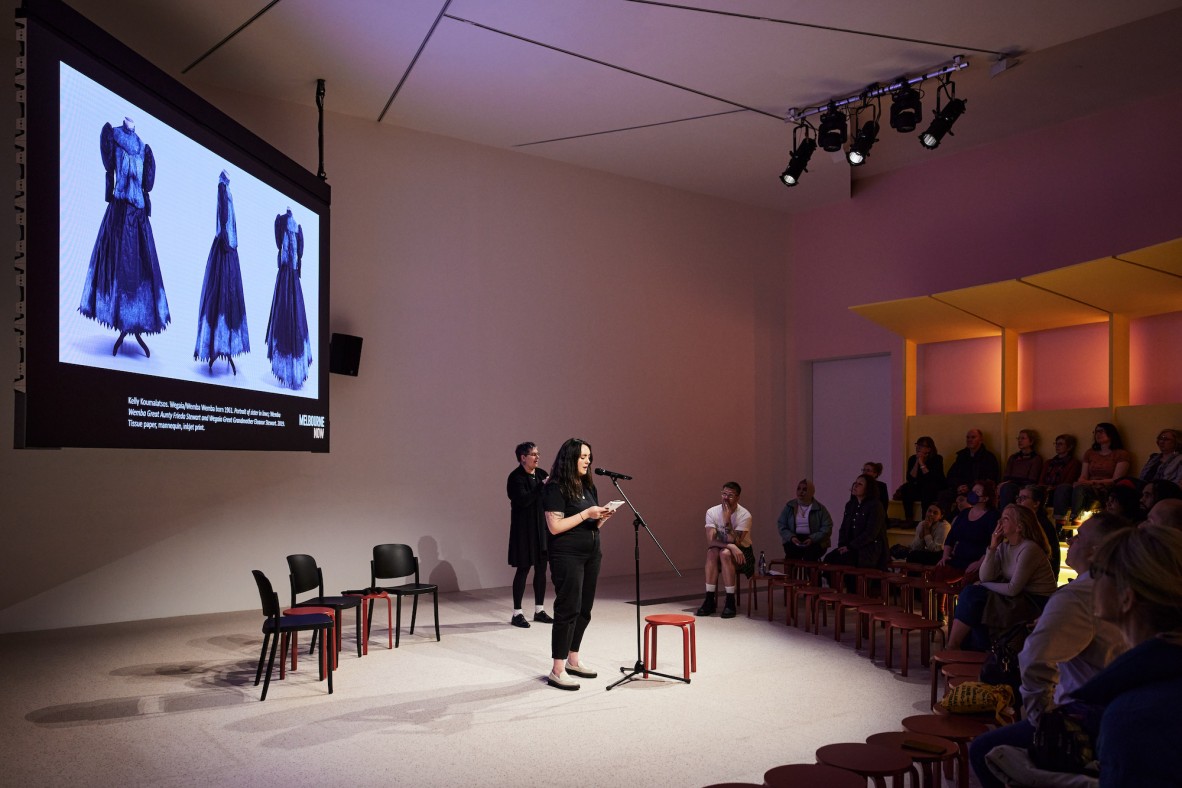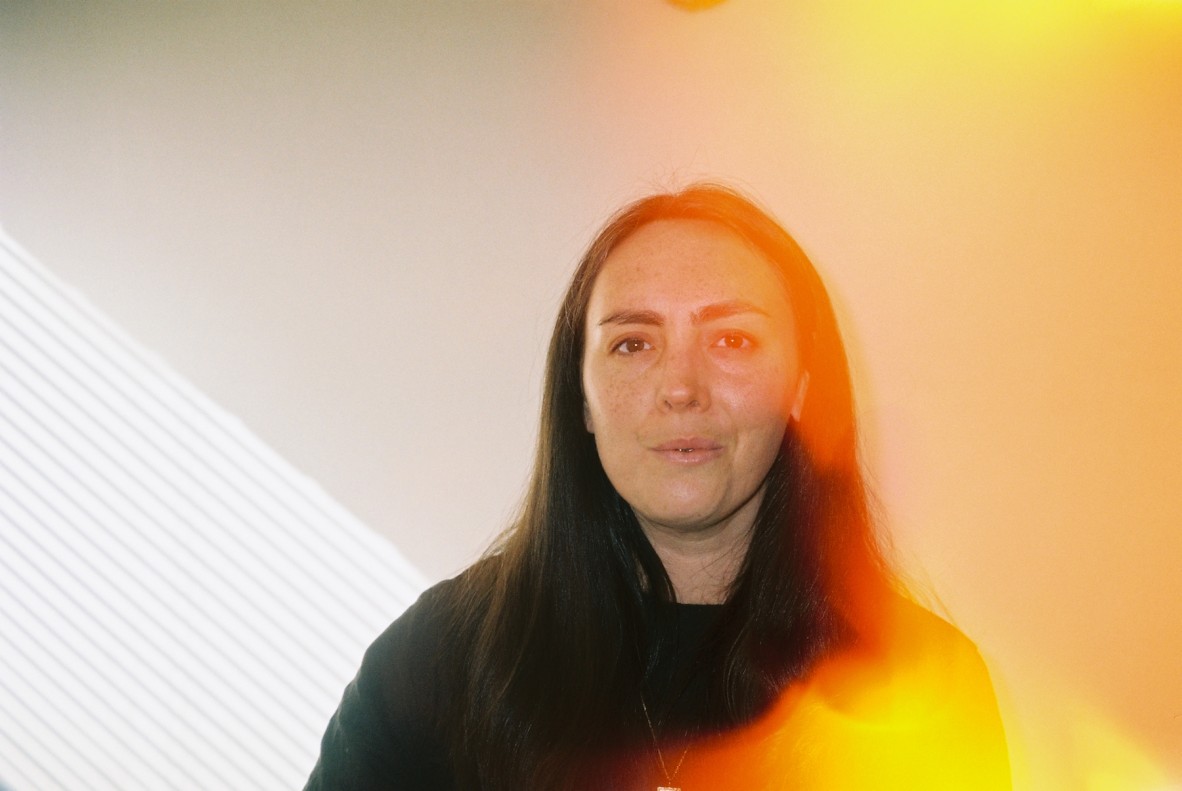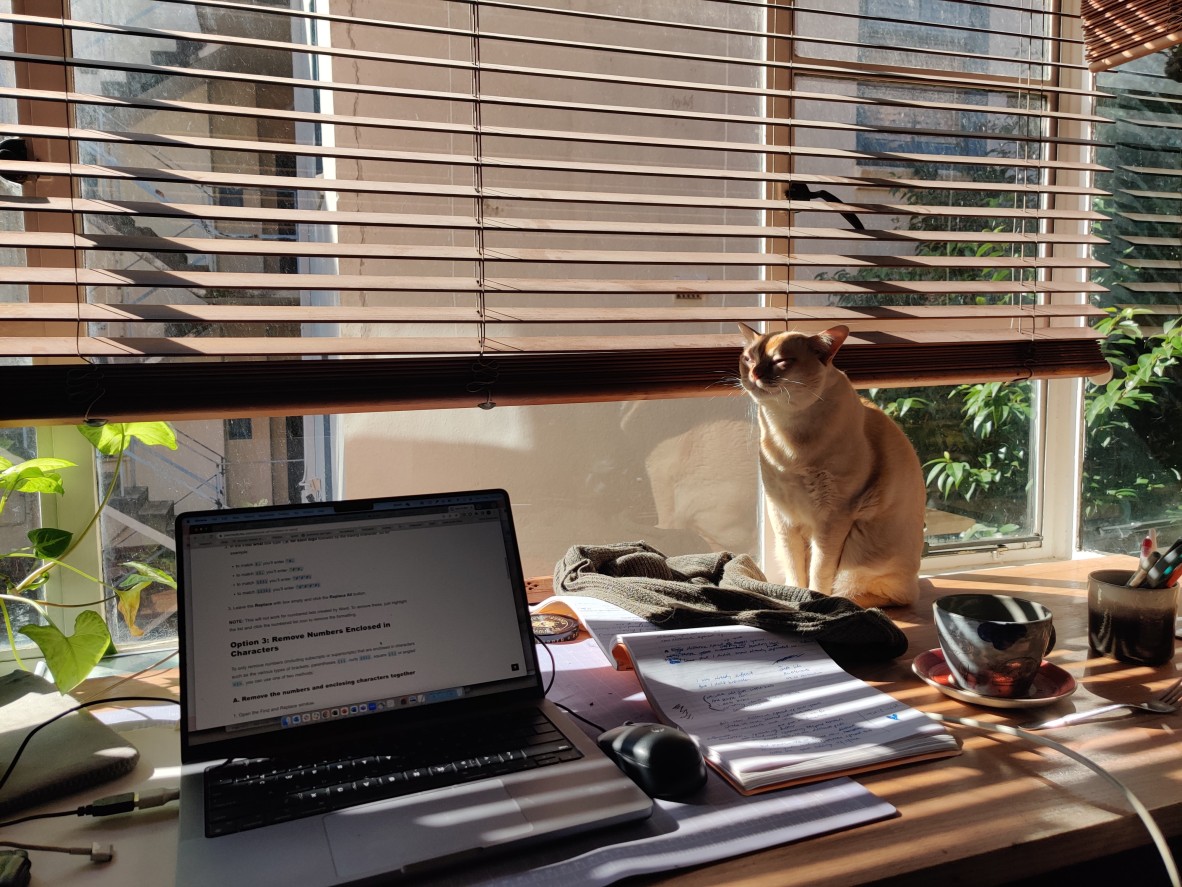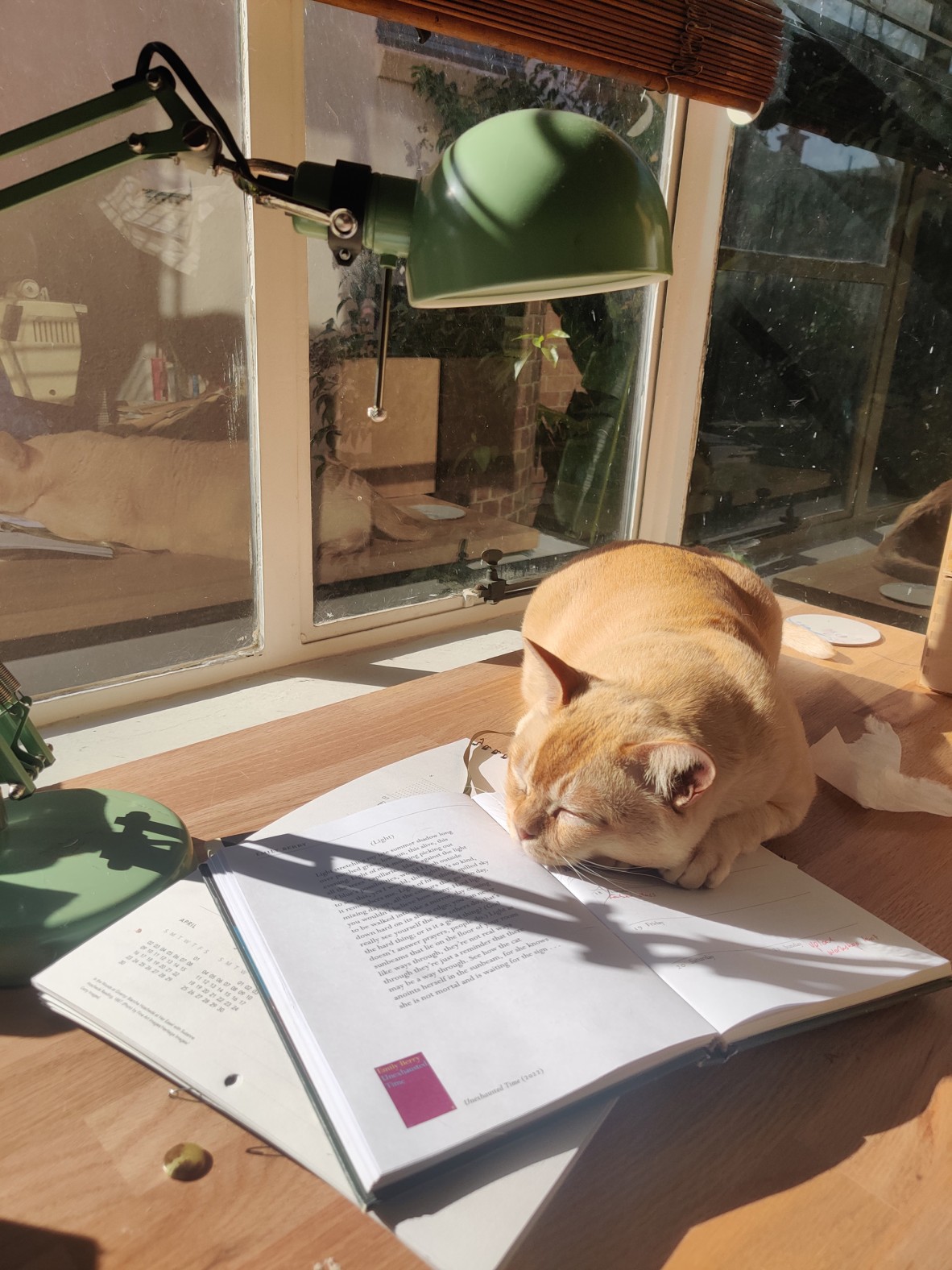"Use your voice. Tell your story": Susie Anderson and the black&write! project
By Reading, Writing and Ideas | 14 December 2023
Applications to the 2024 black&write! Fellowships are open till 22 January 2024.
Thinking of entering? Know somebody who's keen? Read on to find inspiration for the opportunity to work with our First Nations editors and win $15,000 prize money!
Winner of the 2021 black&write! Fellowship Susie Anderson, a Wergaia and Wemba Wemba writer now published by Hachette Australia, talks to black&write! about reading the right thing at the right time, listening to feedback, and how poetry and AFL make a great pair.

Susie reads from the body country at the National Gallery of Victoria as part of Art and Storytelling: A Thousand Words. Image: Michael Pham
How did you hear about the black&write! Fellowships and what made you want to apply?
I read Lemons in the Chicken Wire by Alison Whittaker, and for the first time I found a deep part of myself validated in her writing. I think that I genuinely did not know you could write like she did, and that it might get published in Australia. That was a breakthrough moment for me because, up to that point, I had been self-publishing zines about my crushes. Her work inspired me to think deeper about what makes me who I am, and it inspired me to try to put a collection together.
How long had you been working on the body country before you won? What stage of development was your manuscript in?
For about five years after graduating university, I'd been making little zines and writing observational fragments about my life. I've always loved how poetry lets you play with language and I realised that what I was writing could be considered poetry. Once I got this idea, my ego really drove me to gather pieces from my zines and add more writing from different commissions or prizes. I submitted it twice, when it was at different stages of development, but it wasn't quite ready and I think I knew that. I put the manuscript away, some years passed, then I was invited to submit it a third time. Something clicked within me, and I knew somehow to add in threads of a lyrical essay I'd written about the notion of self and place. And this addition is what you see in the finished manuscript between the poems and sections. When I submitted it, the manuscript was still kind of short for a poetry collection (depending on who you ask) so I worked on a few more pieces to extend it further.

Susie reads and responds to the work of Aboriginal and Greek-Australian artist Kelly Koumalatsos who exhibited as part of Melbourne Now at the National Gallery of Victoria. Image: Michael Pham
What advice would you give to people who are thinking about applying for the 2024 black&write! Fellowships?
I had a sense of entitlement the first couple of times I submitted. I was so certain it was a winning manuscript. As artists, balancing our ego is so important. We must use it to motivate ourselves to apply for opportunities but let in a bit of humility when it's not our turn. When I submitted, I felt I had succeeded simply by having a body of work to draw from. It might seem easy for someone who eventually did win to say that, but I think we can get too attached to fellowships and prize outcomes. Use your voice. Tell your story. Share what is in your heart. Know that writing is what nourishes and soothes you, not whether you win. With that spirit in mind, you can freely apply with no fear. So I say: apply.
Can you tell us a little bit about your experiences during the year of your Fellowship? What was it like developing the body country with First Nations editors?
It was the most wonderful thing to be edited by Bianca Valentino at black&write! We still haven't met in person because the editing process happened during COVID, between her place in Queensland and mine in Victoria. It was so easy working with her though because we had a shared understanding and language. Bianca knew what the work needed and helped me see the bigger picture a lot. Her intuition helped make the collection what it is.
One of my favourite events this year was reading from the collection at an event put on at the National Gallery of Victoria. I was asked to respond to an artwork my cousin Kelly Koumalatsos had in their exhibition Melbourne Now, which you can see projected in these pictures behind me. I read the sequence of poems lake people from my collection that reflect on our Country and the exchange of knowledge between women in our family. It’s a special thing to connect with family through the art we make, sharing the strength of Wergaia culture with people.

Author Susie Anderson. Image: the author.
How did it feel to hold a published copy of the body country in your hands for the very first time?
When the box of author copies of the body country arrived, I opened it up and sat on my couch. There were 12 copies that I held in my hands with my feet on the ground to take some deep breaths. I was alone at home with my cat. He didn't really understand that I've wanted to write books ever since I was a little kid. But it was so special, and it was a moment that I'll never forget.
What was a nice surprise about being published?
The nicest thing is when somebody finds a line that resonates with them. Different pieces become relevant at different times. It can often be a subtle line of a piece that I don't regard as being a standout, and those are the ones I like the most. One very cool moment was when my book made its way into the hands of Collingwood Captain Darcy Moore, thanks to the listeners of the First Time podcast. Very surprising!

Where the creative magic happens (aka Roman gets some sun). Image: Roman's mum, Susie Anderson
What's life been like since your book was published? How does it feel to know that people all over the country are reading your work?
After the book goes to stores, you have a little party, and it feels amazing – it's good to release that energy and celebrate the moment. But people read in their own time. There are no fireworks. The nicest thing was when I heard from my sister that her friends from the Wimmera had read it and loved seeing a different perspective on where we grew up. Feedback is a slow burn. The most important thing is receiving and welcoming warm feedback from people if it does come, because it's such an honour that someone would use their precious time to be with my words.
Now that the body country has been published, can you tell us a little bit about what’s next for you?
I'm trying to write a novel!

Roman being extremely helpful! Image: Susie Anderson
Enter now!
A huge thank you to Susie Anderson for sharing her words of wisdom. Are you a deadly writer? Will your manuscript be next? The 2024 black&write! Writing Fellowships close on 22 January at 11:59pm. Click here for more information.
Susie Anderson is the winner of the 2021 black&write! Writing Fellowship. She has written for publications including – but not limited to – Growing Up Aboriginal in Australia, Archer, and Artlink. Susie's debut poetry collection, the body country, was published by Hachette Australia.
Comments
Your email address will not be published.
We welcome relevant, respectful comments.